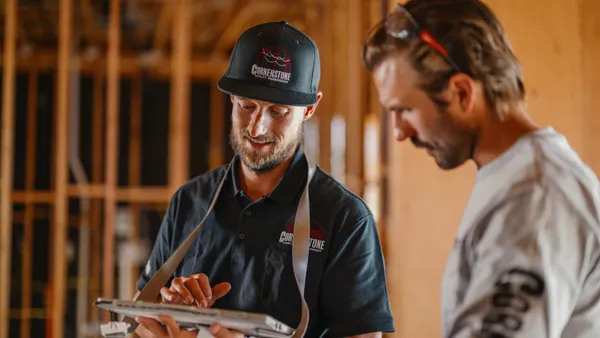Dive Brief:
- Venture capital firm Shadow Ventures recently revealed the graduating members of its first accelerator program for AEC and commercial real estate technology companies.
- The group included BIM planning, management and control platform LOD Planner; airport environment design software firm Citiri; and TrenLot, which provides construction management and scheduling software solutions. The firms participated in a remote nine-week program.
- The program's corporate partners and sponsors include Thornton Tomasetti, JB&B, Schneider Electric, HOLT Ventures and WeWork, which have early access to the group's products.
Dive Insight:
During a conversation with Construction Dive, Shadow CEO and founder K.P. Reddy said the inaugural program members were "all over the place" as far as areas of focus, but that could change with the next class, or classes, of startups.
The next accelerator round could have two or three classes, each focused on one theme. Sponsors and partners, Reddy said, have expressed interest in seeing several startups focused on technologies like BIM or drones. "The hot one is BIM," he said, "and that's what we're vetting through right now."
Regardless of which technologies receive Shadow’s support, they will likely have one common attribute, and that is to shake up the industry. Reddy said that's the difference between new startups and those launching just three years ago. The typical startup dream used to be, he said, was to get enough traction in the market to be snapped up by a larger company.
"We're seeing the opposite," he said. "Startups are much more focused on beating the big guys."
Perhaps what’s most significant about the Shadow incubator is the level of partner involvement. Sponsors of some accelerator programs make their appearances at press events only and are primarily interested in seeing their logos on press releases, Reddy said, but Shadow's partners had significant input from the initial vetting process through graduation.
"Our partners are there week after week, hand in hand with us," Reddy said. "It's easy to take money from a big company, but more so than funding, the bigger ask we have is their time. This makes us very, very different. "
Although the startups' founders and leaders are experts in the AEC space, they must be coachable. "We're pretty tough on people," he said, noting that the individuals running the startups need to listen to advice from the program's partners and be willing to work with them.
As for the first graduating class, Reddy said each firm has already had interest from investors and potential corporate partners, which doesn’t surprise to Reddy. “We believe that after going through the [program] these companies become very investable,” he said.












